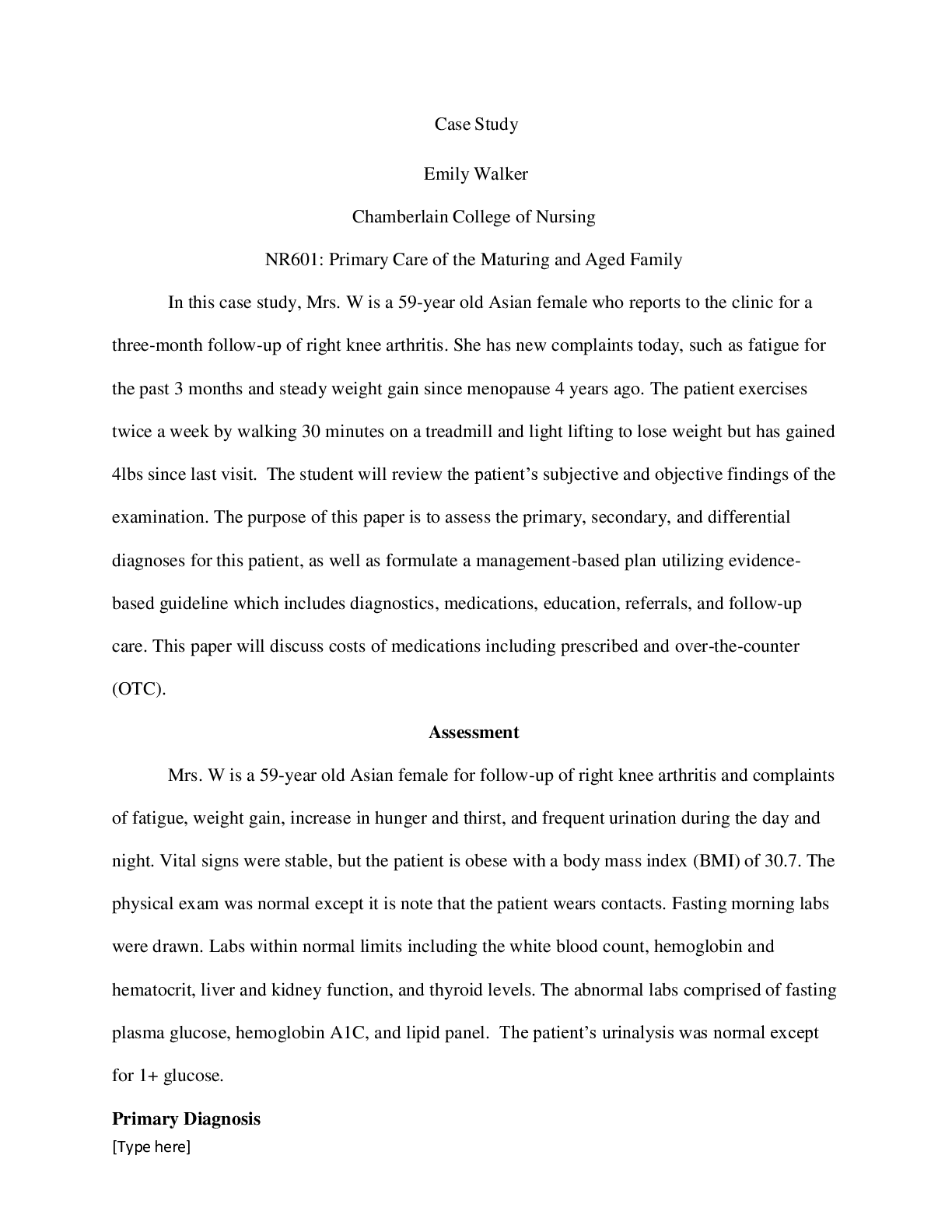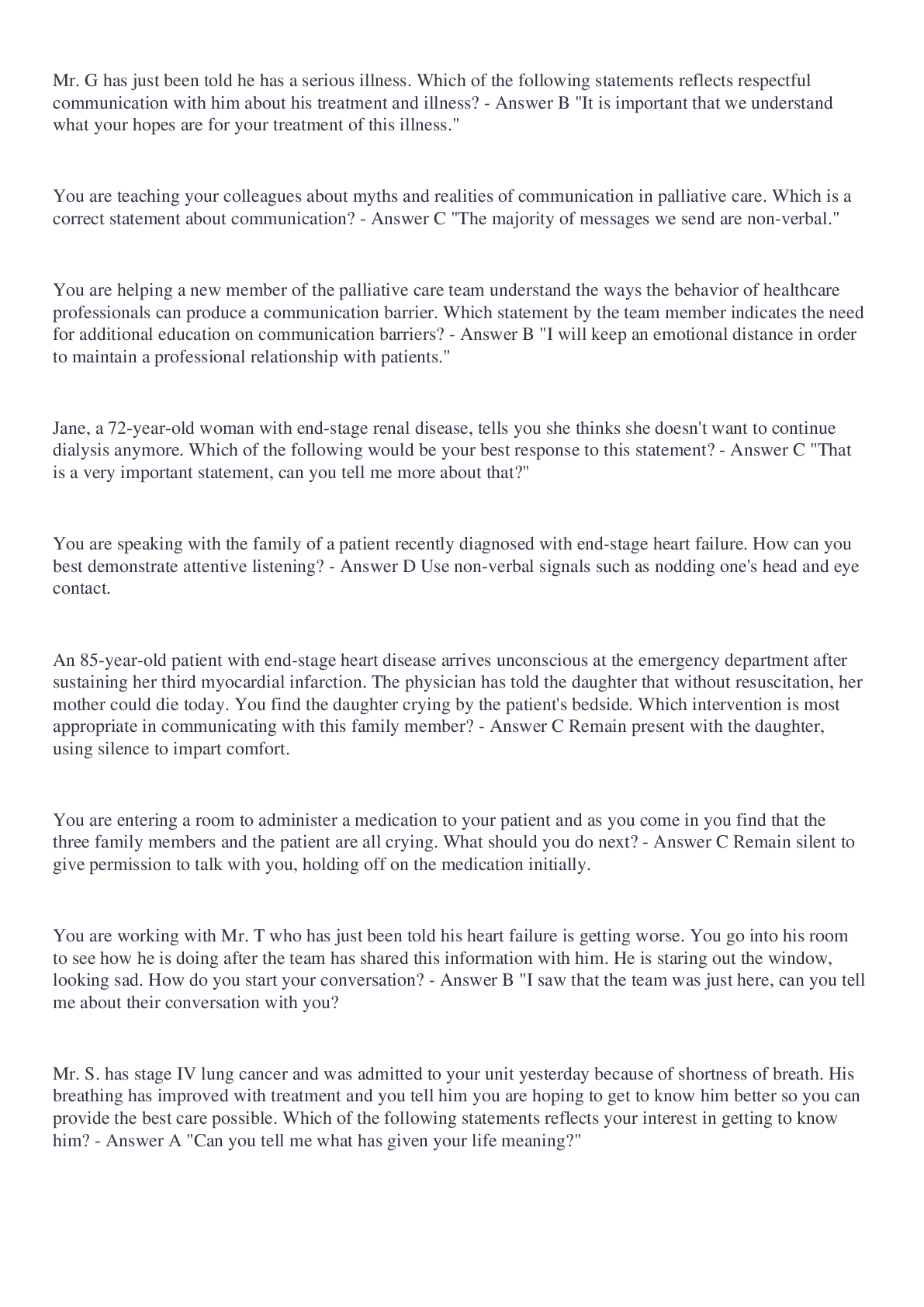Health Care > CASE STUDY > Case Study Mrs. G., 55, Female, Hispanic Primary Diagnosis Type 2 diabetes mellitus without complica (All)
Case Study Mrs. G., 55, Female, Hispanic Primary Diagnosis Type 2 diabetes mellitus without complications (E11.9).
Document Content and Description Below
Case Study Assignment Chamberlain University NR601: Primary Care of the Maturing and Aged Family The intent of this paper is to examine subjective and objective findings of a case study patient t... o appropriately diagnose and formulate an individualized management plan that utilizes evidence-based practice guidelines. The case study patient is a 55-year-old Hispanic female who presents to the office for her annual exam complaining of fatigue, weight gain, polyuria, polydipsia, and polyphagia for the past 3 months. This paper will identify applicable primary, secondary, and differential diagnoses; and apply national guidelines from the American Diabetes Association’s (ADA) 2019 Standards of Medical Care in Diabetes to develop a management plan that will include the appropriate diagnostics, affordable medications, education, referrals, and follow-up. Assessment Primary Diagnosis Type 2 diabetes mellitus without complications (E11.9). Pathophysiology. Type 2 diabetes mellitus (T2DM) is characterized by high levels of plasma glucose due to a decreased function of pancreatic beta cells, which causes insulin resistance and impaired insulin secretion (Dunphy, Winland-Brown, Porter, & Thomas, 2015). The most common manifestations of T2DM include the following: fatigue, polyuria (increased urination), polydipsia (increased thirst), polyphagia (increased appetite) with weight loss (Dunphy et al., 2015). Pertinent positive findings. Very fatigued and low energy, increased hunger and thirst with exercise, increased urination at night and more frequently during the day; which all have been occurring for the past 3 months and a weight gain of 3 pounds (subjective). Mrs. G is 55 years old, Hispanic, and obese according to the calculated BMI of 33.3 kg/m2; elevated hemoglobin A1C of 6.9%, urinalysis showed 1+ glucose and small protein, and dyslipidemia according to lipid panel (objective) (Dunphy et al., 2015). [Show More]
Last updated: 2 years ago
Preview 1 out of 18 pages
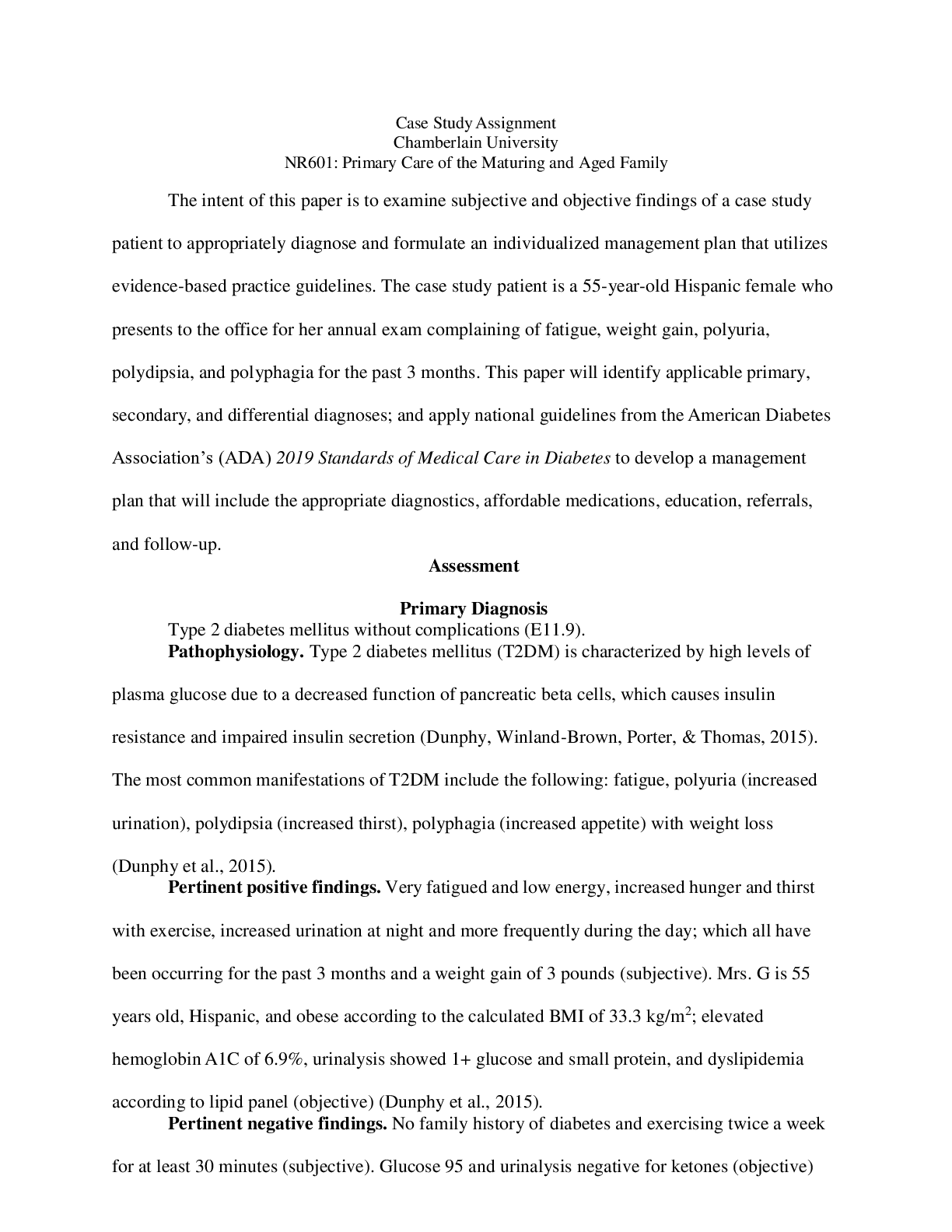
Buy this document to get the full access instantly
Instant Download Access after purchase
Buy NowInstant download
We Accept:

Reviews( 0 )
$14.00
Can't find what you want? Try our AI powered Search
Document information
Connected school, study & course
About the document
Uploaded On
Jun 13, 2021
Number of pages
18
Written in
Additional information
This document has been written for:
Uploaded
Jun 13, 2021
Downloads
0
Views
89

 (A Graded) Latest Questions and Complete Solutions.png)
, Latest Questions and Answers with Explanations, All Correct Study Guide, Download to Score A.png)
 Pneumonia Chronic Obstructive Pulmonary Disease Clinical Reasoning Case Study Medical surgical (NUR 201) Pneumonia-COPD case study solutions.png)
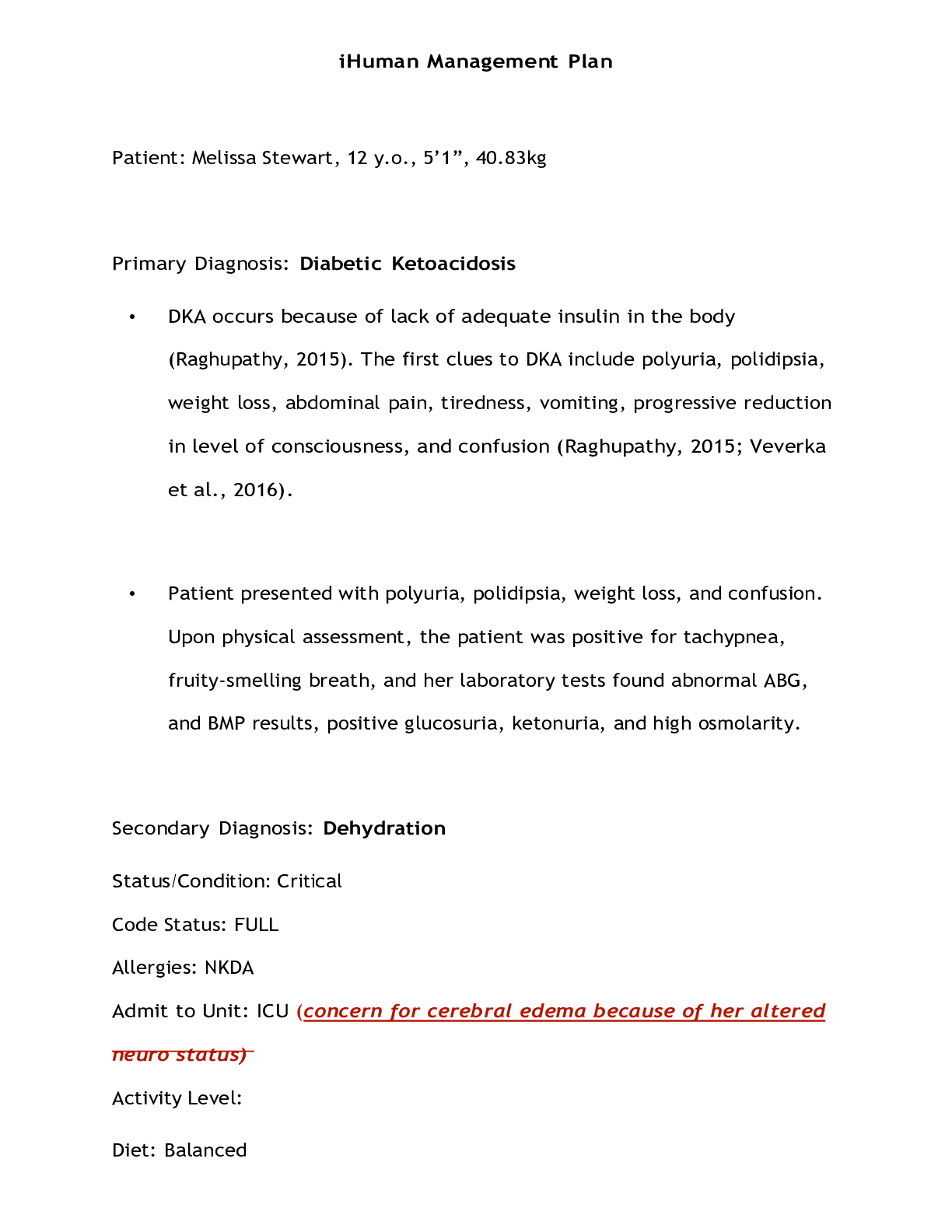


 – Chest Pain Complete Latest Solutions.png)

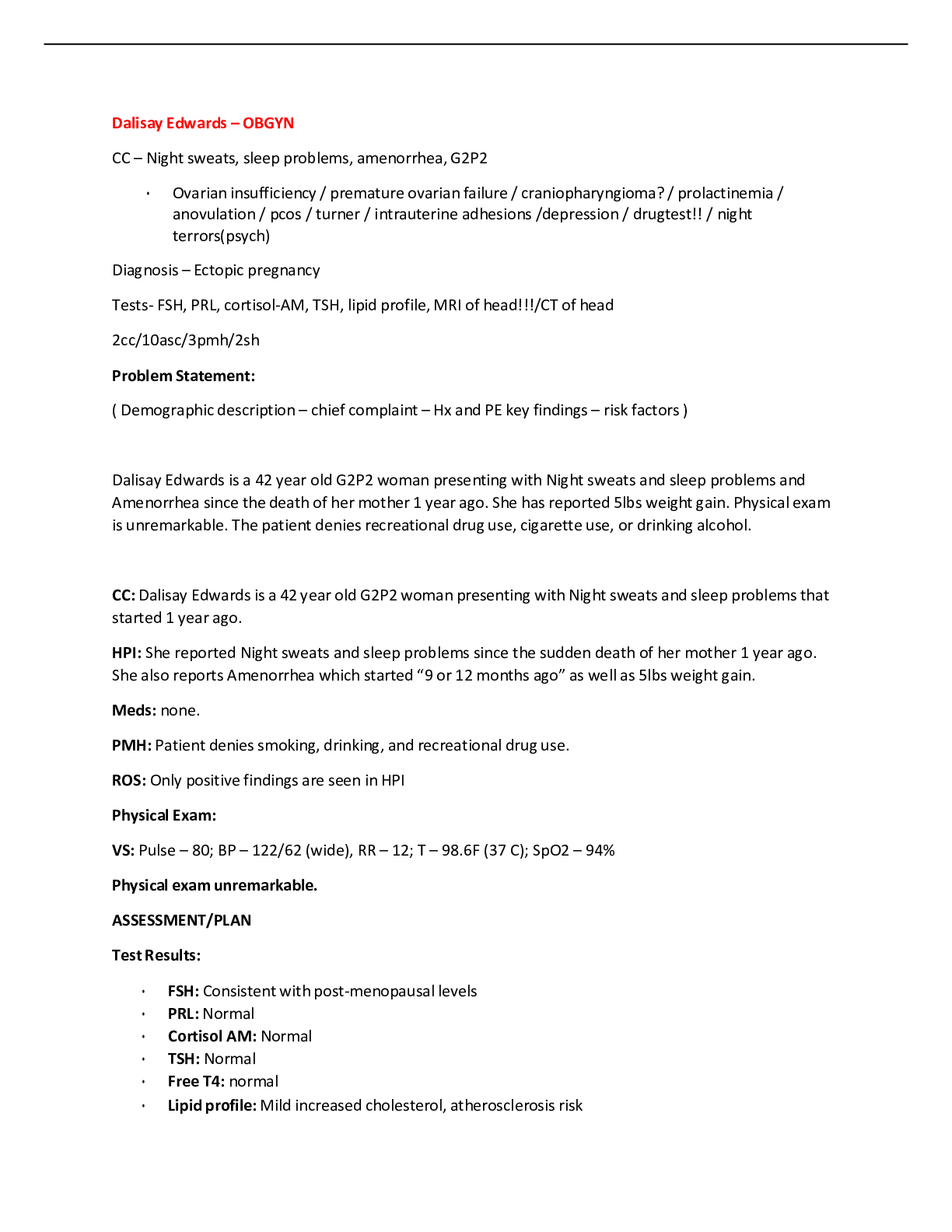


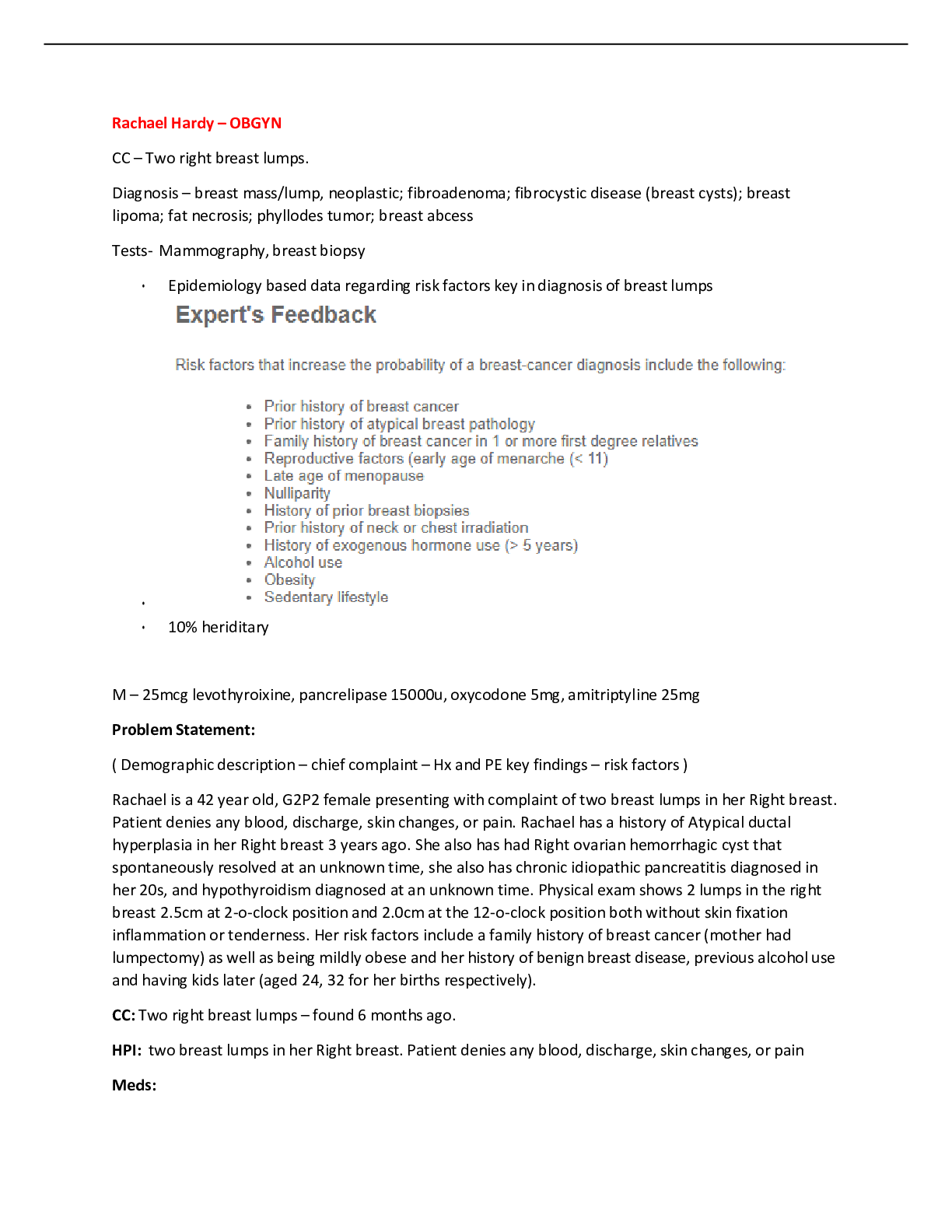
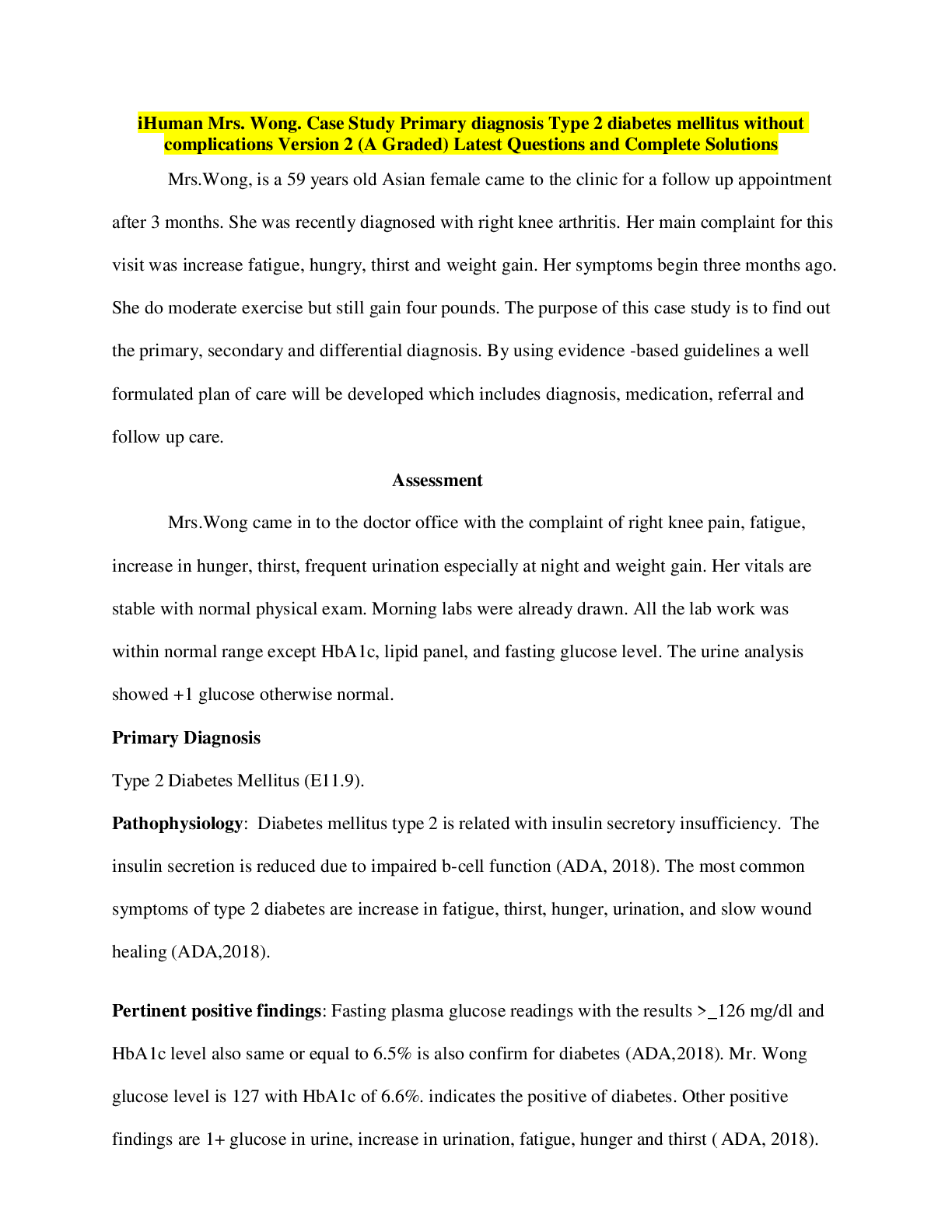
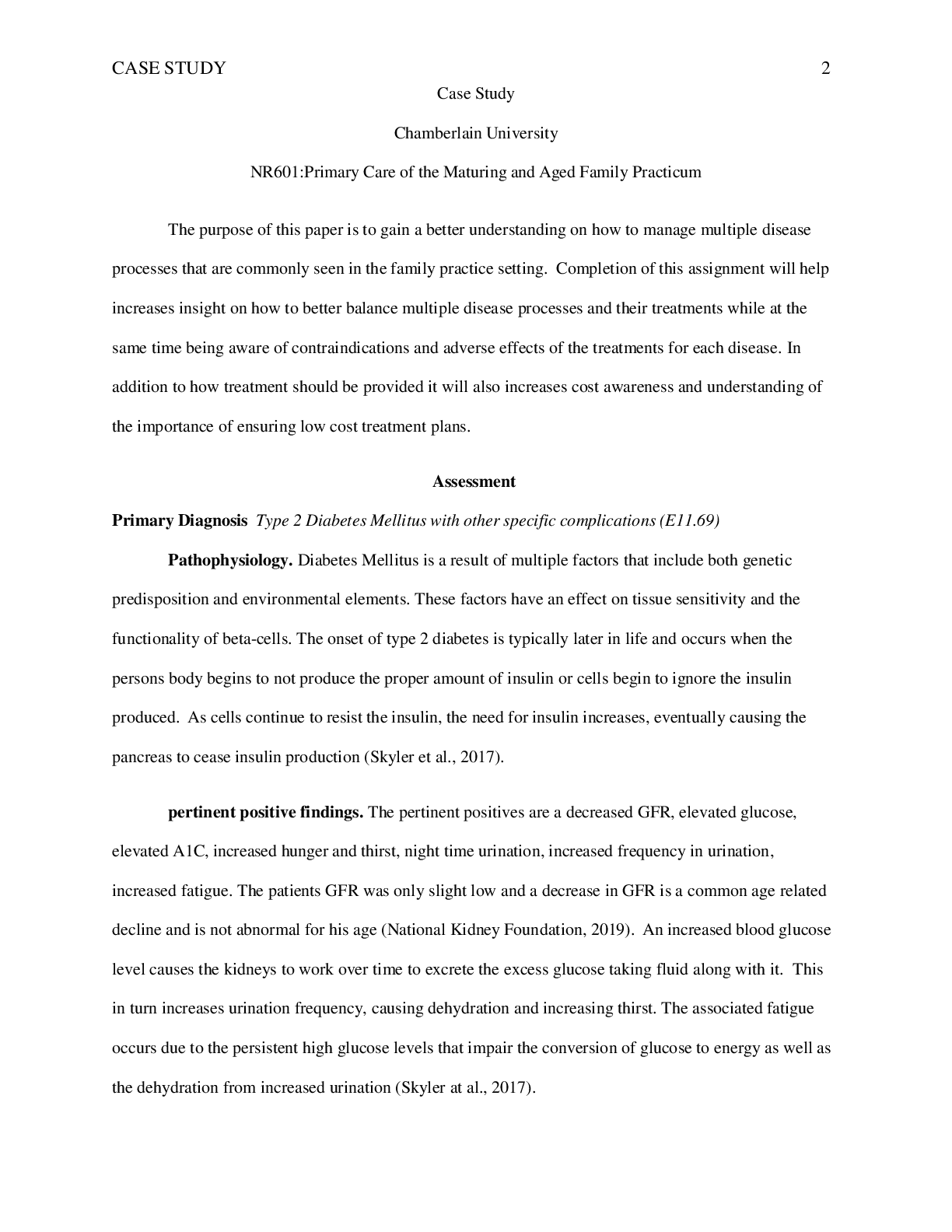

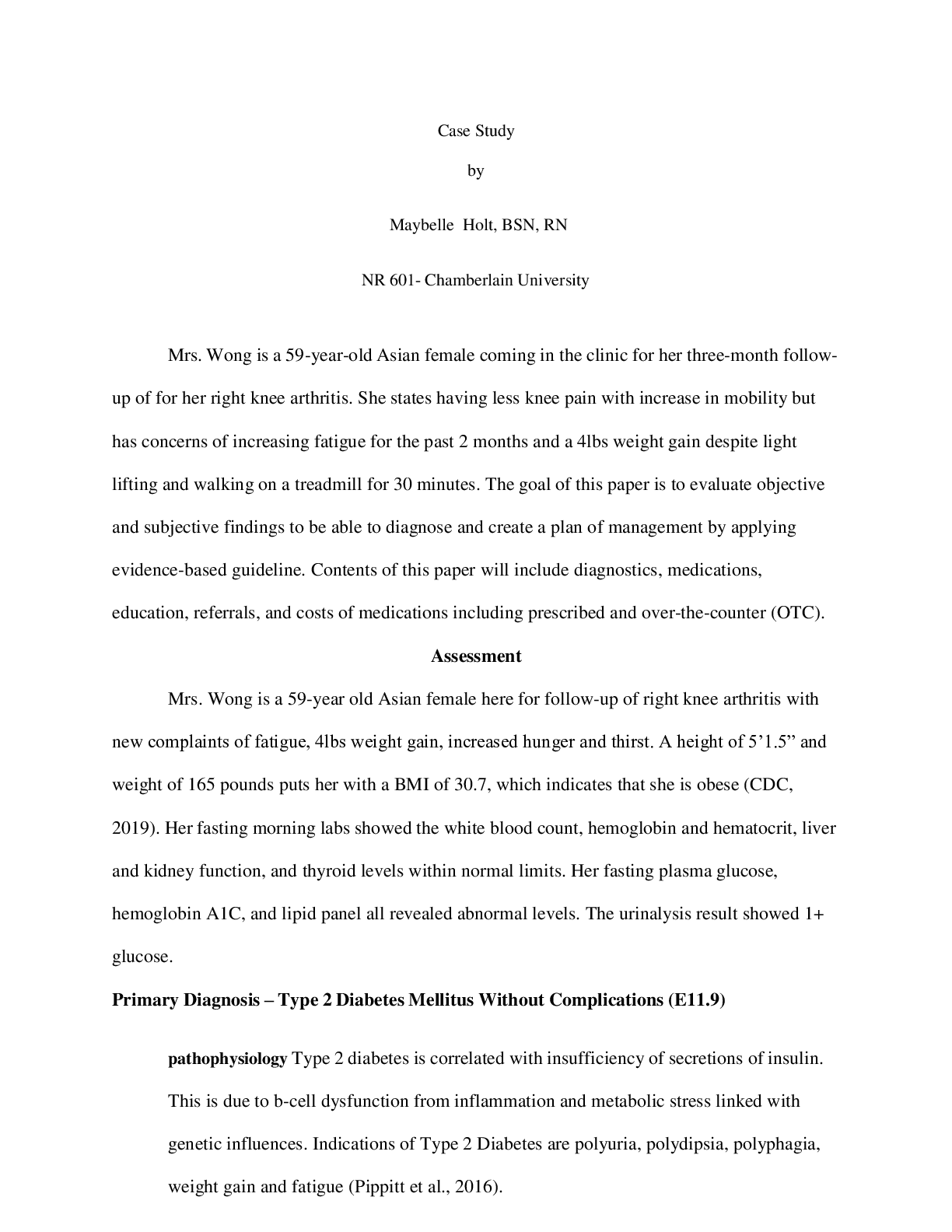
.png)
